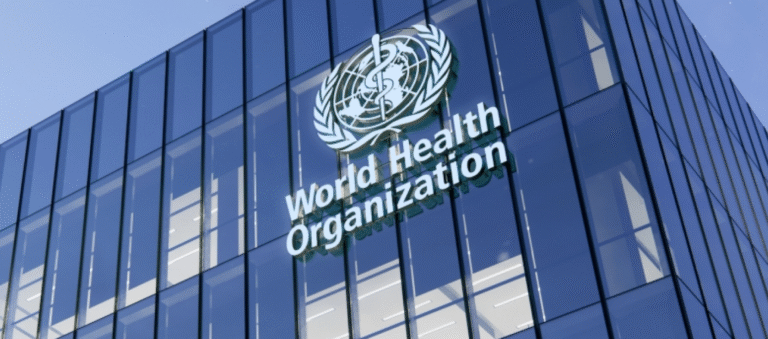
A female dentist treats a young patient at a public clinic in Nigeria. Experts warn that neglect of oral health is fueling a preventable public health crisis in Nigeria.
ABUJA, Nigeria – Tooth decay, gum disease, and premature tooth loss are sweeping silently across Nigeria, creating a public health crisis that experts say is preventable but dangerously neglected. Millions of citizens are suffering in pain, often seeking help only when it is too late — and paying the price in both health and household income.
In this report, Chukwu Obinna, examines the scale of Nigeria’s oral health burden, the human toll, and the urgent reforms needed to avert another generation condemned to needless disease.
A Growing Burden
The World Health Organisation (WHO) estimates that oral diseases affect 3.5 billion people globally. In Nigeria, caries prevalence in adults ranges from 4% to 40% depending on region and socioeconomic status, placing the country among Africa’s hardest hit.
Yet oral health remains low on the national agenda, overshadowed by infectious diseases such as malaria and HIV.
Pain and Neglect
In major hospitals, dentists say patients arrive only when pain is unbearable. “We are witnessing a generation losing their teeth to preventable diseases,” says Dr. Stephen Ade, a dental surgeon in Enugu. By the time many patients seek treatment, multiple extractions are often inevitable.
Awareness Gap
Cultural attitudes and poor awareness make matters worse. In many communities, toothache is seen as inevitable, not as a sign of disease. Nationwide, there are virtually no campaigns linking oral health to overall well-being. “We have campaigns for malaria, HIV, and polio — but oral health is absent from Nigeria’s preventive agenda,” says Lagos-based dentist Dr. Ifeoma Nwosu.
Lifestyle and Diet Pressures
Changing diets and lifestyles are accelerating the problem. Sugary drinks, processed snacks, tobacco, and alcohol are fueling decay and gum disease.
Nigeria lacks nationwide fluoride programs and has yet to introduce sugar taxes recommended by WHO. “We’re consuming more sugar than ever before without regulation,” Dr. Ade warns.
Beyond the Mouth
Experts stress that poor oral health is tied to wider illnesses, including diabetes, heart disease, and even pregnancy complications. “Oral health is not isolated,” says WHO Nigeria representative Dr. Walter Kazadi. “It is directly tied to chronic diseases already straining Nigeria’s healthcare system.”
The Cost of Neglect
Out-of-pocket payments dominate dental care, pushing families deeper into poverty. Abuja trader Ezinne Eze recalls ignoring her toothache until treatment cost her over ₦80,000 and three lost teeth.
“If I had gone earlier, it would have cost less than ₦15,000,” she says. Analysts warn this catastrophic health costs are invisible drivers of poverty in Nigeria.
Workforce and Access Gaps
Nigeria has just over 3,000 registered dentists for a population of 229 million — one for every 73,000 people, far from the WHO recommendation of one per 10,000.
Regional inequalities are stark: one dentist for 36,425 people in the Southwest versus one for 254,521 in the Northwest.
Rural areas fare even worse, with entire local councils lacking a single dental clinic. Insurance rarely covers dental care, leaving most families to choose between food and treatment.
Stories of Hope
Prevention works when available. For Daniel Atorough, a 22-year-old student in Nasarawa, a free dental outreach caught early decay and introduced him to proper hygiene.
“Now I brush twice daily and teach my siblings,” he says. His story shows the power of education, outreach, and affordable prevention.
The Economic Case
Economists argue oral health reform is an economic necessity. Every $1 spent on prevention saves $3–$4 in treatment and productivity costs.
“When a trader loses teeth, she loses customers. When a teacher misses work due to toothache, students suffer,” Dr. Ade explains. Some firms offering dental coverage report fewer sick days and higher morale.
A Call to Action
Experts call for a national oral health strategy that trains community health workers, introduces school programs, expands insurance coverage, and deploys mobile dental clinics. Stronger regulation of sugar and water fluoridation would strengthen prevention.
“Healthy teeth are not a luxury,” Dr. Ade stresses. “They are a foundation for healthy lives. If Nigeria fails to act now, it risks raising another generation condemned to needless pain and preventable disease.”




